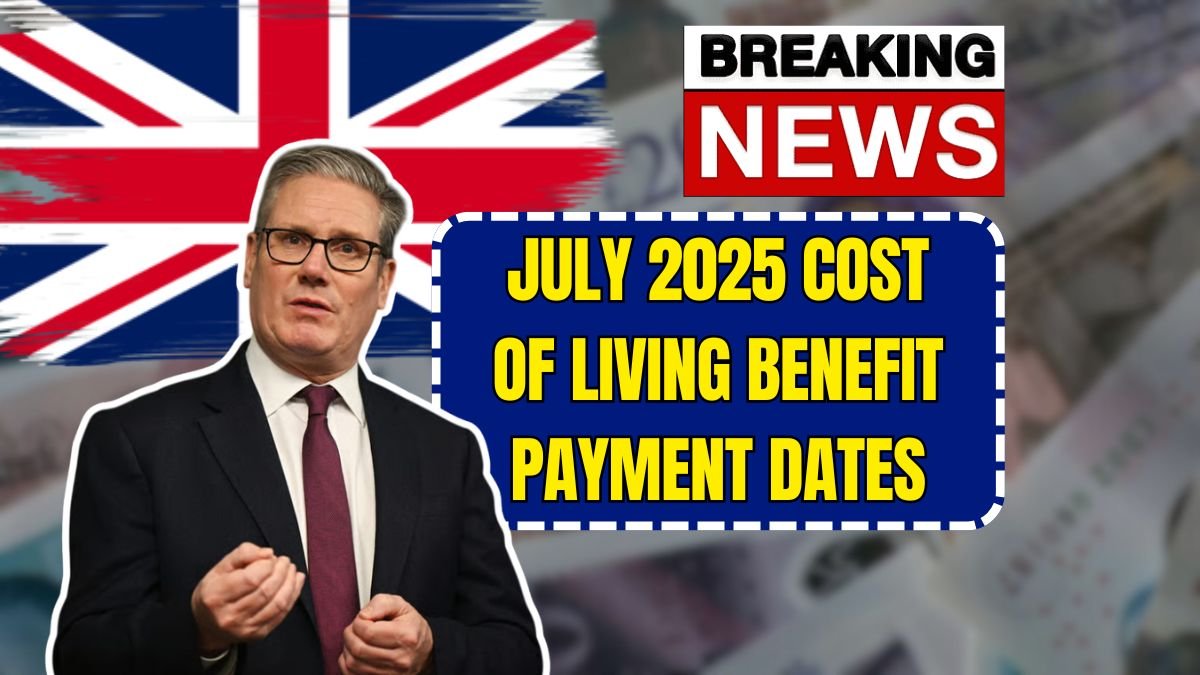In today’s time, when inflation has affected common life, millions of people in Britain are managing their expenses by relying on government assistance schemes. Many schemes run by the government, such as Universal Credit, pensions, child benefit and many other benefits, are working to give relief to the people in difficult economic times.
Struggle to live amid rising inflation
As we reach the midpoint of 2025, the shock of the price rise in the month of April may now be felt somewhat less, but the truth is that millions of families in Britain are still facing financial challenges. There has been an increase in the minimum wage, state pension and other benefits, but the pace of inflation remains much faster than income.
According to a report by the Joseph Rowntree Foundation, in 2022-23, 21 percent of people in Britain—that is, more than 14.3 million people—were living in poverty. In this difficult economic scenario, it is vital that everyone make sure they are receiving the benefits they are entitled to.
£23 billion in benefits goes unclaimed each year.
According to Policy in Practice, around £23 billion in aid goes unclaimed each year by eligible people. If you don’t know which schemes you are entitled to, you can easily estimate it using their online calculator.
Which benefits will be paid in July 2025?
There is no bank holiday in July, so all government benefits will be released on time. These benefits include:
- Universal Credit
- State Pension
- Pension Credit
- Child Benefit
- Disability Living Allowance (DLA)
- Personal Independence Payment (PIP)
- Attendance Allowance
- Carer’s Allowance
- Employment Support Allowance (ESA)
- Income Support
- Jobseeker Allowance
You can check when and how these payments are made by visiting the government’s official website.
State pension payment: What day will you get your pension?
The state pension is deposited directly into your bank account once every four weeks. The day it will be deposited depends on the last two digits of your National Insurance (NI) number:
- 00 to 19: Monday
- 20 to 39: Tuesday
- 40 to 59: Wednesday
- 60 to 79: Thursday
- 80 to 99: Friday
Has the benefit amount increased?
All working-age benefits are increased by 1.7 percent in April 2025, in line with the inflation rate in September 2024. The State Pension is increased by 4.1 percent according to the triple lock formula—an increase of around £472 per year.
The standard allowance rate of Universal Credit will increase from £91 to £98 from 2026. However, the amount of the health element will be frozen from 2026 and new claimants will receive just £50 a week, significantly less than the current rate. So if you think you’re eligible, it’s wise to apply as soon as possible.
Other financial support schemes
Budgeting Advance Loans
For people relying on Universal Credit, the government offers ‘budgeting advance loans’ in emergency situations. This is an interest-free loan that needs to be repaid over a maximum of two years.
- For a single person: £348
- For a couple: £464
- If you have children: £812
From April 2025, the maximum amount that can be deducted to pay off these loans is now 15 percent, down from 25 percent previously.
Discretionary Housing Payment (DHP)
If you’re covered by Housing Benefit or the housing element of Universal Credit, you can apply for additional rent help (DHP) from your local council. This can pay for a reduction in rent, a deposit or rent in advance.
Household Support Fund (HSF)
This scheme is delivered by local councils and aims to help people in financial difficulty. The scheme can provide things like freezers, washing machines, help with bills or direct cash support. The scheme will run until March 2026 and will then be replaced by the Crisis and Resilience Fund.
Charitable grants
If you’re going through a hardship, you may be able to get limited financial support from some charities. Turn2us helps you find such support schemes. These support schemes are for the sick, unemployed, carers, students and others in need.
Support from energy providers
Energy companies such as British Gas, EDF, Scottish Power, Oaktopus and others offer help with bill payments. If you’re unable to pay your bills, contact your energy provider—you may be able to get a discount.
Council tax discount
If you’re covered by certain benefit schemes, you may be able to get a discount on council tax. In some cases, the discount can be as much as 100 percent. To get this discount, you’ll need to apply on your local council’s website.
Free childcare
All working parents in the UK get 30 hours of free childcare for children aged 3 to 4. From April 2024, this has been extended to 15 hours for 2-year-olds too and from September 2024, it applies to nine-month-olds too.
From September 2025, the scheme will be further expanded, with 30 hours of free childcare for all children under five years old. This will require periodic online application and eligibility reconfirmation.
Conclusion
For millions of people living in the UK in July 2025, it is important to be aware of their rights and the support schemes available. Want to get a new childcare plan? Whether it’s Universal Credit, the State Pension, or an emergency assistance scheme—every benefit scheme can have a profound impact on people’s lives.
If you’re wondering which schemes you may be eligible for, it’s time to evaluate your situation. These benefits provided by the government are not just paper schemes but a solid way to give you stability in today’s expensive times.
FAQs
Q. What benefits are being paid in July 2025 in the UK?
A. Universal Credit, State Pension, Child Benefit, PIP, DLA, Carer’s Allowance, ESA, and more will be paid as usual in July.
Q. When will I receive my State Pension in July?
A. Your payment date depends on the last two digits of your National Insurance number, ranging from Monday to Friday.
Q. Has the benefit rate increased in 2025?
A. Yes, in April 2025, most working-age benefits increased by 1.7%, and the State Pension rose by 4.1%.
Q. What other financial support is available besides regular benefits?
A. You may be eligible for Budgeting Advance Loans, Discretionary Housing Payments, the Household Support Fund, and charitable grants.
Q. How can I apply for free childcare in the UK?
A. Working parents can apply online for up to 30 hours of free childcare for children under five, with eligibility reconfirmation every three months.


